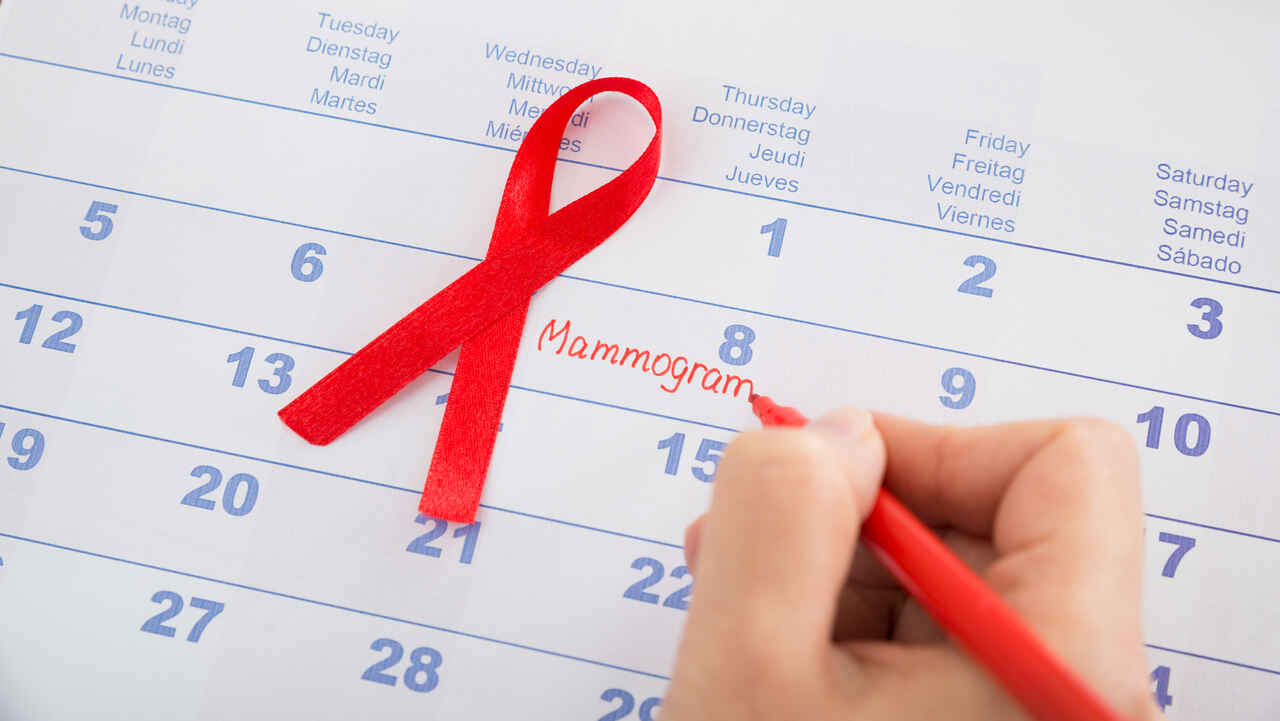 If you put off getting a mammogram during the pandemic, here’s why it’s time to schedule one.
If you put off getting a mammogram during the pandemic, here’s why it’s time to schedule one.
Are you overdue for a mammogram? Getting this breast cancer screening every year helps your doctor spot signs of cancer long before you may notice any changes in your breasts.
Like many people in the U.S., you may have put off your usual check-ups and screenings during the COVID-19 pandemic. In fact, you may be one of the 382,000 women who missed breast cancer screenings between March 2020 to March 2021. But even though the virus hasn’t quite gone away, it is safe to get a mammogram once again—and it’s important to do so.
Together we can ensure your healthiest future possible
The Baton Rouge Clinic’s Imaging Center for Women is dedicated to the evaluation and diagnosis of breast diseases. We offer a state-of-the-art 3D digital mammography or Tomosynthesis and Ultrasound in a comfortable and private environment. During your annual physical with your internist, we can also conveniently offer on-site 3D screening mammography services. At your request, prior mammography films can be obtained from outside physicians and facilities.
If it’s been a while since you had a mammogram, these 6 reasons just may convince you to pick up the phone and make an appointment:
-
- You may have breast cancer even if you haven’t felt a lump. You may not be able to feel a lump if it’s small or deep inside your breast. Luckily, mammograms can show lumps and other changes in the breasts that can be caused by cancer before they’re otherwise felt. The screenings use low dose X-rays that give doctors a look at the inside of your breasts.
- The sooner cancer is caught, the better. Your chance of surviving breast cancer is much better if the cancer is found early. The five-year survival rate is 99% if the cancer is found before it spreads outside the breast, according to the National Breast Cancer Foundation. If found early, your doctor may only need to remove the lump instead of the entire breast.
- You may be more likely to get breast cancer if family members had it. Your chance of getting breast cancer could be higher if someone else in your family had the cancer. If your mother, daughter or sister had breast cancer, your risk could be nearly double. Keep in mind, however, that you can also get breast cancer even if no one in your family has ever had it.
- The older you are, the higher your risk of breast cancer. You can get breast cancer at any age, but it’s more likely to happen as you get older. The Centers for Disease Control and Prevention (CDC) reports that most breast cancers happen in women over 50. The American Cancer Society® suggests starting yearly breast cancer screenings between ages 40 to 44.
- Besides age and family history, there are other things that may increase your risk. According to the CDC, factors that may raise your risk of breast cancer are dense breasts, having breast cancer in the past, radiation treatment of the chest or breasts, starting your period before age 12 or starting menopause after age 55. Talk to your doctor about your risk factors.
- Mammograms are quick and easy. Getting a mammogram usually takes only 30 minutes or less. Most places that provide screenings offer a choice of appointment times so you can select a time that’s most convenient for you. You might be able to get a screening during your lunch hour, before or after work, or on the weekend.
Copyright 2021 © Baldwin Publishing, Inc. All rights reserved.
Health eCooking® is a registered trademark of Baldwin Publishing, Inc. Cook eKitchen™ is a designated trademark of Baldwin Publishing, Inc. Any duplication or distribution of the information contained herein without the express approval of Baldwin Publishing, Inc. is strictly prohibited.
Date Last Reviewed: August 16, 2021
Editorial Review: Andrea Cohen, Editorial Director, Baldwin Publishing, Inc. Contact Editor
Medical Review: Perry Pitkow, MD
Learn more about Baldwin Publishing Inc. editorial policy, privacy policy, ADA compliance and sponsorship policy.
No information provided by Baldwin Publishing, Inc. in any article is a substitute for medical advice or treatment for any medical condition. Baldwin Publishing, Inc. strongly suggests that you use this information in consultation with your doctor or other health professional. Use or viewing of any Baldwin Publishing, Inc. article signifies your understanding and agreement to the disclaimer and acceptance of these terms of use.